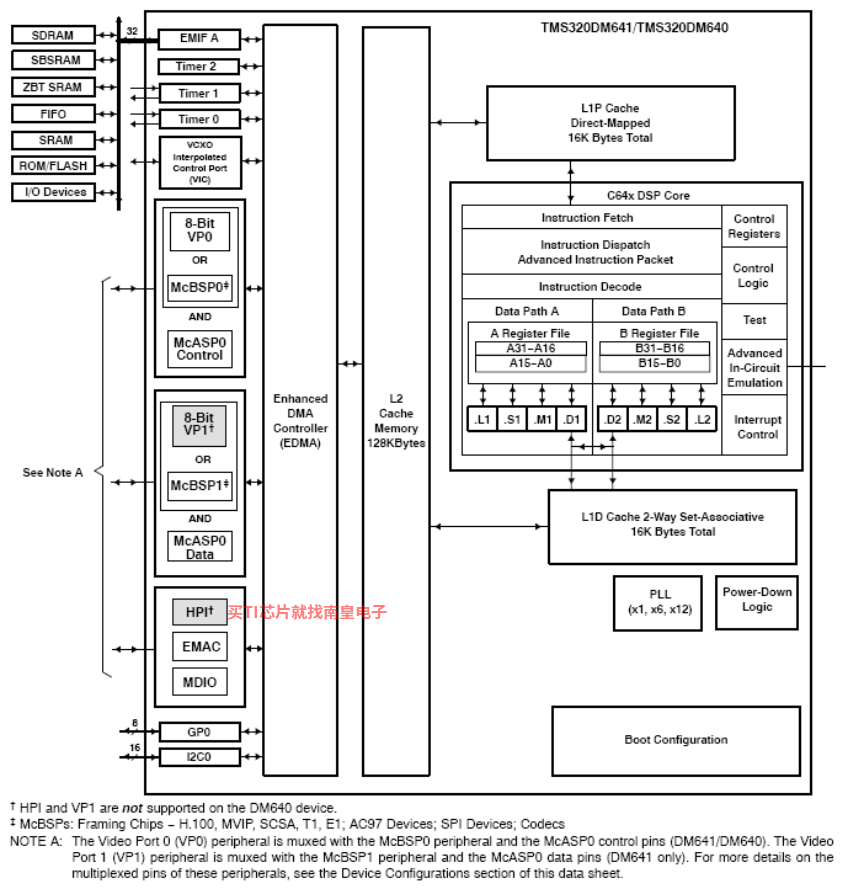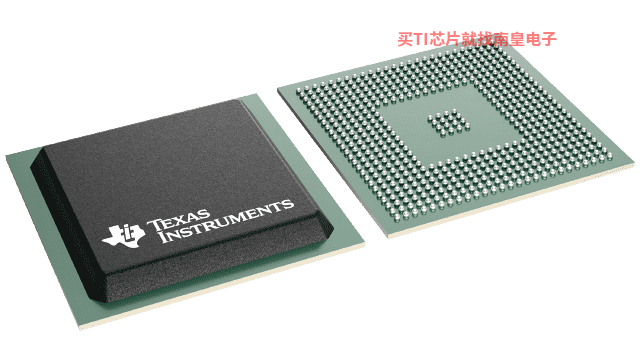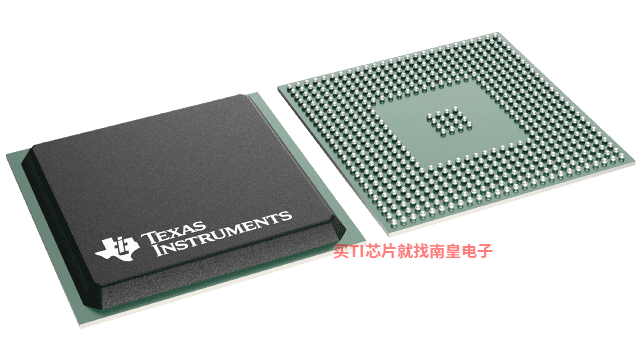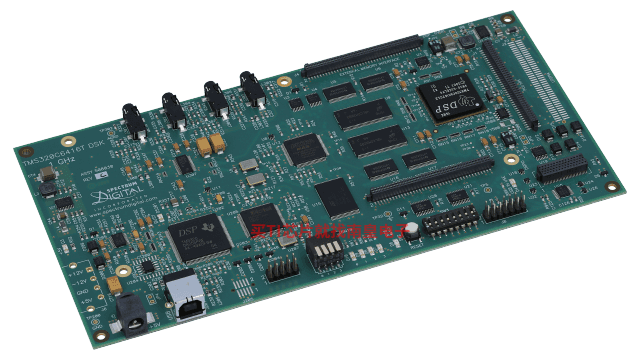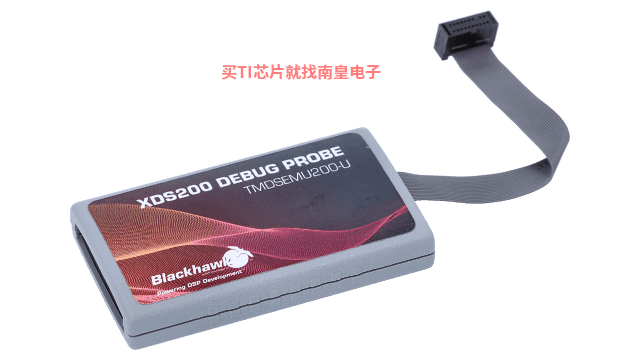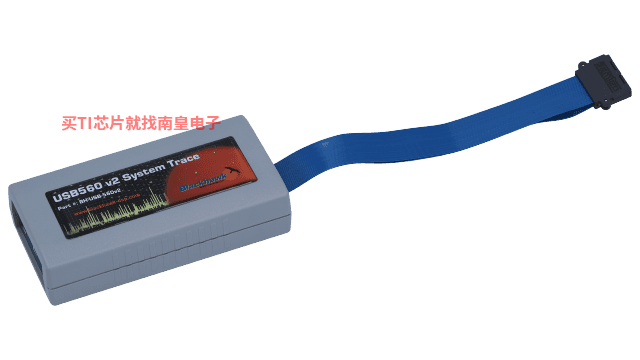
- 制造厂商:TI
- 产品类别:微控制器 (MCU) 和处理器
- 技术类目:处理器 - 数字信号处理器 (DSP)
- 功能描述:视频/成像定点数字信号处理器
- 点击这里打开及下载TMS320DM640的技术文档资料
- TI代理渠道,提供当日发货、严格的质量标准,满足您的目标价格

The TMS320C64x™ DSPs (including the TMS320DM641 and TMS320DM640 devices) are the highest-performance fixed-point DSP generation in the TMS320C6000™ DSP platform. The TMS320DM641 (DM641) and TMS320DM640 (DM640) devices are based on the second-generation high-performance, advanced VelociTI™ very-long-instruction-word (VLIW) architecture (VelociTI.2™) developed by Texas Instruments (TI), making these DSPs an excellent choice for digital media applications. The C64x™ is a code-compatible member of the C6000™ DSP platform.
With performance of up to 4800 million instructions per second (MIPS) at a clock rate of 600 MHz, the DM641 device offers cost-effective solutions to high-performance DSP programming challenges.
With performance of up to 3200 million instructions per second (MIPS) at a clock rate of 400 MHz, the DM640 device offers cost-effective solutions to high-performance DSP programming challenges.
The DM641/DM640 DSP possesses the operational flexibility of high-speed controllers and the numerical capability of array processors. The C64x™ DSP core processor has 64 general-purpose registers of 32-bit word length and eight highly independent functional units-two multipliers for a 32-bit result and six arithmetic logic units (ALUs)-with VelociTI.2™ extensions. The VelociTI.2™ extensions in the eight functional units include new instructions to accelerate the performance in video and imaging applications and extend the parallelism of the VelociTI™ architecture. The DM641 can produce four 16-bit multiply-accumulates (MACs) per cycle for a total of 2400 million MACs per second (MMACS), or eight 8-bit MACs per cycle for a total of 4800 MMACS. The DM640 can produce four 16-bit multiply-accumulates (MACs) per cycle for a total of 1600 million MACs per second (MMACS), or eight 8-bit MACs per cycle for a total of 3200 MMACS. The DM641/DM640 DSP also has application-specific hardware logic, on-chip memory, and additional on-chip peripherals similar to the other C6000™ DSP platform devices.
The DM641/DM640 uses a two-level cache-based architecture and has a powerful and diverse set of peripherals. The Level 1 program cache (L1P) is a 128-Kbit direct mapped cache and the Level 1 data cache (L1D) is a 128-Kbit 2-way set-associative cache. The Level 2 memory/cache (L2) consists of an 1-Mbit memory space that is shared between program and data space. L2 memory can be configured as mapped memory, cache, or combinations of the two. The peripheral set includes: two configurable video ports (DM641); one configurable video port (DM640); a 10/100 Mb/s Ethernet MAC (EMAC); a management data input/output (MDIO) module; a VCXO interpolated control port (VIC); one 4-bit multichannel buffered audio serial port (McASP0); an inter-integrated circuit (I2C) Bus module; two multichannel buffered serial ports (McBSPs); three 32-bit general-purpose timers; a 16-bit host-port interface (HPI16); a 8-pin general-purpose input/output port (GP0) with programmable interrupt/event generation modes; and a 32-bit glueless external memory interface (EMIFA), which is capable of interfacing to synchronous and asynchronous memories and peripherals.
The DM641 device has two single-channel 8-bit configurable video port peripherals (VP0 and VP1). The DM640 device has one single-channel 8-bit configurable video port peripheral (VP0). These video port peripherals provide a glueless interface to common video decoder and encoder devices. The DM641/DM640 video port peripherals support multiple resolutions and video standards (e. g., CCIR601 and ITU-).
These video port peripherals are configurable and can support either video capture and/or video display modes.
For more details on the Video Port peripherals, see the TMS320C64x DSP Video Port/VCXO Interpolated Control (VIC) Port Reference Guide (literature number SPRU629).
The McASP0 port supports one transmit and one receive clock zone, with four serial data pins which can be individually allocated to any of the two zones. The serial port supports time-division multiplexing on each pin from 2 to 32 time slots. The DM641/DM640 has sufficient bandwidth to support all 4 serial data pins transmitting a 192-kHz stereo signal. Serial data in each zone may be transmitted and received on multiple serial data pins simultaneously and formatted in a multitude of variations on the Philips Inter-IC Sound (I2S) format.
In addition, the McASP0 transmitter may be programmed to output multiple S/PDIF, IEC60958, AES-3, CP-430 encoded data channels simultaneously, with a single RAM containing the full implementation of user data and channel status fields.
McASP0 also provides extensive error-checking and recovery features, such as the bad clock detection circuit for each high-frequency master clock which verifies that the master clock is within a programmed frequency range.
The VCXO interpolated control (VIC) port provides digital-to-analog conversion with resolution from 9-bits to up to 16-bits. The output of the VIC is a single bit interpolated D/A output. For more details on the VIC port, see the TMS320C64x DSP Video Port/VCXO Interpolated Control (VIC) Port Reference Guide (literature number SPRU629).
The ethernet media access controller (EMAC) provides an efficient interface between the DM641/DM640 DSP core processor and the network. The DM641/DM640 EMAC supports both 10Base-T and 100Base-TX, or 10 Mbits/second (Mbps) and 100 Mbps in either half- or full-duplex, with hardware flow control and quality of service (QOS) support. The DM641/DM640 EMAC makes use of a custom interface to the DSP core that allows efficient data transmission and reception. For more details on the EMAC, see the TMS320C6000 DSP Ethernet Media Access Controller (EMAC) / Management Data Input/Output (MDIO) Module Reference Guide (literature number SPRU628).
The management data input/output (MDIO) module continuously polls all 32 MDIO addresses in order to enumerate all PHY devices in the system. Once a PHY candidate has been selected by the DSP, the MDIO module transparently monitors its link state by reading the PHY status register. Link change events are stored in the MDIO module and can optionally interrupt the DSP, allowing the DSP to poll the link status of the device without continuously performing costly MDIO accesses. For more details on the MDIO, see the TMS320C6000 DSP Ethernet Media Access Controller (EMAC) / Management Data Input/Output (MDIO) Module Reference Guide (literature number SPRU628).
The I2C0 port on the TMS320DM641/DM640 allows the DSP to easily control peripheral devices and communicate with a host processor. In addition, the standard multichannel buffered serial port (McBSP) may be used to communicate with serial peripheral interface (SPI) mode peripheral devices.
The DM641/DM640 has a complete set of development tools which includes: a new C compiler, an assembly optimizer to simplify programming and scheduling, and a Windows™ debugger interface for visibility into source code
- High-Performance Digital Media Processor (TMS320DM641/TMS320DM640)
- 2.5-, 2-, 1.67-ns Instruction Cycle Time
- 400-, 500-, 600-MHz Clock Rate
- Eight 32-Bit Instructions/Cycle
- 3200, 4000, 4800 MIPS
- Fully Software-Compatible With C64x?
- VelociTI.2? Extensions to VelociTI? Advanced Very-Long-Instruction-Word VLIW) TMS320C64x? DSP Core
- Eight Highly Independent Functional Units With VelociTI.2? Extensions:
- Six ALUs (32-/40-Bit), Each Supports Single 32-Bit, Dual 16-Bit, or Quad 8-Bit Arithmetic per Clock Cycle
- Two Multipliers Support Four 16 x 16-Bit Multiplies (32-Bit Results) per Clock Cycle or Eight 8 x 8-Bit Multiplies (16-Bit Results) per Clock Cycle
- Load-Store Architecture With Non-Aligned Support
- 64 32-Bit General-Purpose Registers
- Instruction Packing Reduces Code Size
- All Instructions Conditional
- Eight Highly Independent Functional Units With VelociTI.2? Extensions:
- Instruction Set Features
- Byte-Addressable (8-/16-/32-/64-Bit Data)
- 8-Bit Overflow Protection
- Bit-Field Extract, Set, Clear
- Normalization, Saturation, Bit-Counting
- VelociTI.2? Increased Orthogonality
- L1/L2 Memory Architecture
- 128K-Bit (16K-Byte) L1P Program Cache (Direct Mapped)
- 128K-Bit (16K-Byte) L1D Data Cache (2-Way Set-Associative)
- 1M-Bit (128K-Byte) L2 Unified Mapped RAM/Cache (Flexible RAM/Cache Allocation)
- Endianess: Little Endian, Big Endian
- 32-Bit External Memory Interface (EMIF)
- Glueless Interface to Asynchronous Memories (SRAM and EPROM) and Synchronous Memories (SDRAM, SBSRAM, ZBT SRAM, and FIFO)
- 1024M-Byte Total Addressable External Memory Space
- Enhanced Direct-Memory-Access (EDMA) Controller (64 Independent Channels)
- 10/100 Mb/s Ethernet MAC (EMAC)
- IEEE 802.3 Compliant
- Media Independent Interface (MII)
- 8 Independent Transmit (TX) and 1 Receive (RX) Channel
- Management Data Input/Output (MDIO)
- Two Configurable Video Ports (DM641)
- One Configurable Video Port (DM640)
- Providing a Glueless I/F to Common Video Decoder and Encoder Devices
- Supports Multiple Resolutions and Video Standards
- VCXO Interpolated Control Port (VIC)
- Supports Audio/Video Synchronization
- Host-Port Interface (HPI) [16-Bit] (DM641)
- Multichannel Audio Serial Port (McASP)
- Four Serial Data Pins
- Wide Variety of I2S and Similar Bit Stream Format
- Integrated Digital Audio I/F Transmitter Supports S/PDIF, IEC60958-1, AES-3, CP-430 Formats
- Inter-Integrated Circuit (I2C) Bus
- Two Multichannel Buffered Serial Ports
- Three 32-Bit General-Purpose Timers
- Eight General-Purpose I/O (GPIO) Pins
- Flexible PLL Clock Generator
- IEEE-1149.1 (JTAG?) Boundary-Scan-Compatible
- 548-Pin Ball Grid Array (BGA) Package (GDK and ZDK Suffixes), 0.8-mm Ball Pitch
- 548-Pin Ball Grid Array (BGA) Package (GNZ and ZNZ Suffixes), 1.0-mm Ball Pitch
- 0.13-μm/6-Level Cu Metal Process (CMOS)
- 3.3-V I/Os, 1.2-V Internal (-400, -500)
- 3.3-V I/Os, 1.4-V Internal (-600)
C64x, VelociTI.2, VelociTI, and TMS320C64x are trademarks of Texas Instruments. All trademarks are the property of their respective owners. ? IEEE Standard 1149.1-1990 Standard-Test-Access Port and Boundary Scan Architecture. TMS320C6000 and C6000 are trademarks of Texas Instruments. Windows is a registered trademark of the Microsoft Corporation.
- DSP
- 1 C64x
- DSP MHz (Max)
- 400
- CPU
- 32-/64-bit
- Operating system
- DSP/BIOS
- Ethernet MAC
- 10/100
- Rating
- Catalog
TMS320DM640的完整型号有:TMS320DM640AZDK4、TMS320DM640AZDKA4、TMS320DM640AZNZ4、TMS320DM640AGNZ4,以下是这些产品的关键参数及官网采购报价:
TMS320DM640AZDK4,工作温度:PropertyValue,封装:FCBGA (ZDK)-548,包装数量MPQ:60个,MSL 等级/回流焊峰值温度:Level-4-260C-72HR,引脚镀层/焊球材料:SNAGCU,TI官网TMS320DM640AZDK4的批量USD价格:26.478(1000+)
TMS320DM640AZDKA4,工作温度:PropertyValue,封装:FCBGA (ZDK)-548,包装数量MPQ:60个,MSL 等级/回流焊峰值温度:Level-4-260C-72HR,引脚镀层/焊球材料:SNAGCU,TI官网TMS320DM640AZDKA4的批量USD价格:31.774(1000+)
TMS320DM640AZNZ4,工作温度:PropertyValue,封装:FCBGA (ZNZ)-548,包装数量MPQ:40个,MSL 等级/回流焊峰值温度:Level-4-260C-72HR,引脚镀层/焊球材料:SNAGCU,TI官网TMS320DM640AZNZ4的批量USD价格:26.478(1000+)
TMS320DM640AGNZ4,工作温度:PropertyValue,封装:FCBGA (GNZ)-548,包装数量MPQ:40个,MSL 等级/回流焊峰值温度:Level-4-220C-72 HR,引脚镀层/焊球材料:SNPB,TI官网TMS320DM640AGNZ4的批量USD价格:30.45(1000+)

TMDSDSK6416 — TMS320C6416 DSP 入门套件 (DSK)
Spectrum Digital XDS200 是最新 XDS200 系列 TI 处理器调试探针(仿真器)的首个模型。XDS200 系列拥有超低成本 XDS100 与高性能 XDS560v2 之间的低成本与高性能的完美平衡。此外,对于带有嵌入式缓冲跟踪器 (ETB) 的所有 ARM 和 DSP 处理器,所有 XDS 调试探针均支持内核和系统跟踪。
Spectrum Digital XDS200 通过 TI 20 引脚连接器(带有适合 TI 14 引脚、TI 10 引脚和 ARM 20 引脚的多个适配器)连接到目标板,而通过 USB2.0 高速连接 (480Mbps) 连接到主机 PC。要在主机 (...)
TMDSEMU560V2STM-U — Blackhawk XDS560v2 系统跟踪 USB 仿真器
XDS560v2 System Trace 是 XDS560v2 系列高性能 TI 处理器调试探针(仿真器)的第一种型号。XDS560v2 是 XDS 系列调试探针中性能最高的一款,同时支持传统 JTAG 标准 (IEEE1149.1) 和 cJTAG (IEEE1149.7)。
XDS560v2 System Trace 在其巨大的外部存储器缓冲区中加入了系统引脚跟踪。这种外部存储器缓冲区适用于指定的 TI 器件,通过捕获相关器件级信息,获得准确的总线性能活动和吞吐量,并对内核和外设进行电源管理。此外,对于带有嵌入式缓冲跟踪器 (ETB) 的所有 ARM 和 DSP 处理器,所有 XDS (...)
TMDSEMU560V2STM-UE — Spectrum Digital XDS560v2 系统跟踪 USB 和以太网
XDS560v2 System Trace 是 XDS560v2 系列高性能 TI 处理器调试探针(仿真器)的第一种型号。XDS560v2 是 XDS 系列调试探针中性能最高的一款,同时支持传统 JTAG 标准 (IEEE1149.1) 和 cJTAG (IEEE1149.7)。
XDS560v2 System Trace 在其巨大的外部存储器缓冲区中加入了系统引脚跟踪。这种外部存储器缓冲区适用于指定的 TI 器件,通过捕获相关器件级信息,获得准确的总线性能活动和吞吐量,并对内核和外设进行电源管理。此外,对于带有嵌入式缓冲跟踪器 (ETB) 的所有 ARM 和 DSP 处理器,所有 XDS (...)
SPRC090 — TMS320C6000 芯片支持库
芯片支持库 (CSL) 提供了一个应用程序编程接口 (API),用于配置和控制 DSP 片上外设,以实现易用性、各种 C6000 器件间的兼容性以及硬件抽象。通过本身的标准性和可移植性,可缩短开发时间。特性部分中列出的功能专为以下器件设计:C6201、C6202、C6203、C6204、C6205、C6211、C6410、C6412、C6413、C6414、C6415、C6416、C6418、C6701、C6711、C6712、C6713、DA610、DM640、DM641 和 DM642。特性模块名称外设说明高速缓存高速缓存DAT与器件无关的数据复制/填充DMA直接存储器访问EDMA (...)SPRC122 — C62x/C64x 快速运行时支持 (RTS) 库
C62x/64x FastRTS Library 是优化型浮点函数库,适用于使用 TMS320C62x 或 TMS320C64x 器件的 C 语言编程器。这些例程通常用于计算密集型实时应用,在这些应用中,提高执行速度至关重要。通过将当前的浮点库 (RTS) 函数替换为 FastRTS Library,可以在不重写现有代码的情况下大大加快执行速度。该版本还包括 FastRTS Library 中可用函数子集的 C 语言实施。C 代码可让用户内联这些函数并获得更高性能。
特性 单精度和双精度数学函数 单精度和双精度转换函数 浮点加法 将浮点值转换为 32 位带符号整数值 将 32 位带符号整数值转换为浮点值 (...)TELECOMLIB — 用于 TMS320C64x+ 和 TMS320C55x 处理器的电信和媒体库 - FAXLIB、VoLIB 和 AEC/AER
Voice Library- VoLIBprovides components that, together, facilitate the development of the signal processing chain for Voice over IP applications such as infrastructure, enterprise, residential gateways and IP phones. Together with optimized implementations of ITU-T voice codecs, that can be (...)DM640 GDK/GNZ IBIS Model
TI has partnered with companies to offer a wide range of software, tools, and SOMs using TI processors to accelerate your path to production. Download this search tool to quickly browse our third-party solutions and find the right third-party to meet your needs. The software, tools and modules (...)